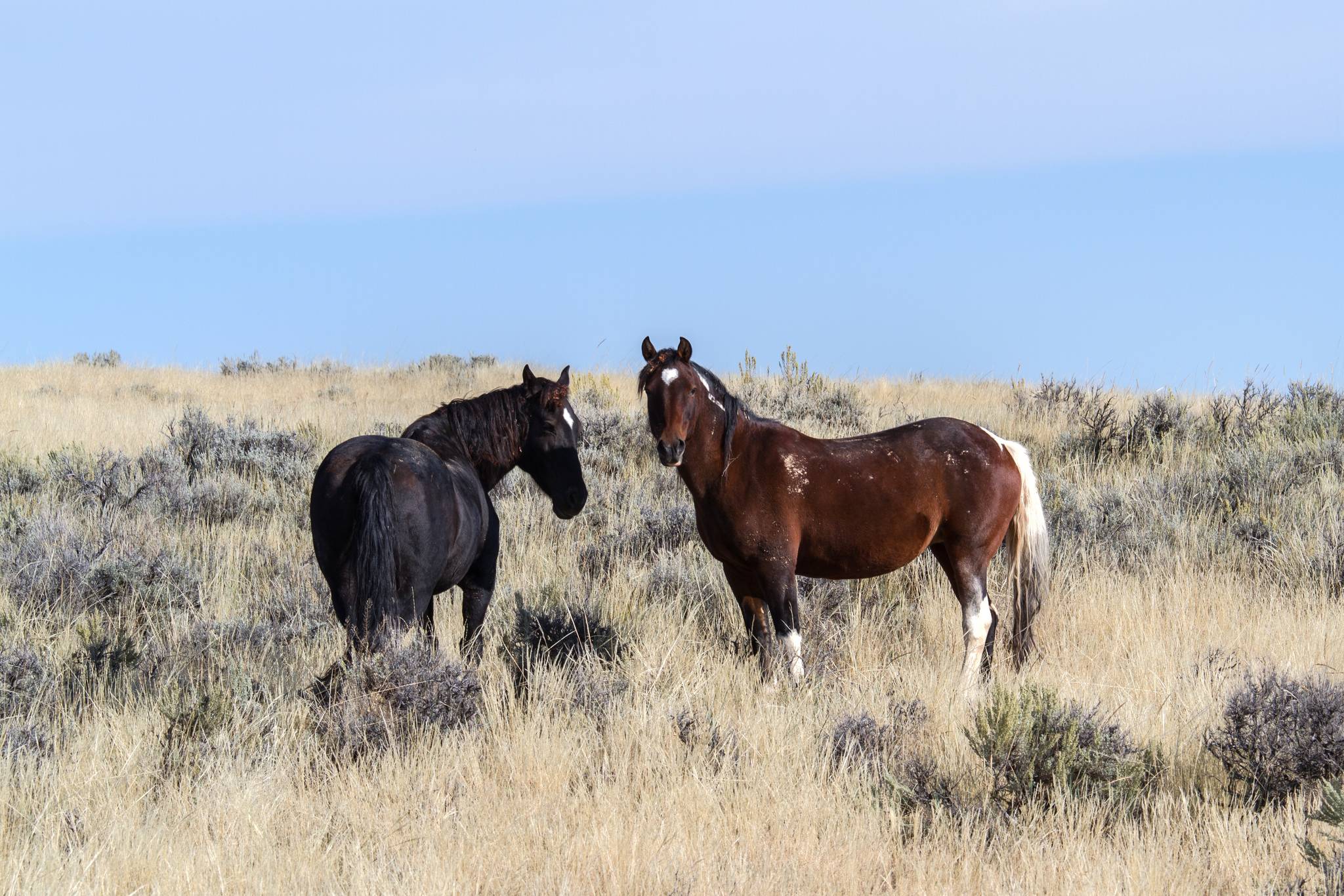By Suzanne Roy
The great Alaskan wilderness is home to iconic wildlife, and it would be very hard to imagine Alaska without its majestic bears, caribou, moose and other wild creatures.
In the Western Lower 48, the wild mustang is the iconic image of rugged American freedom, the loss of which would be just as devastating. These unique resources should be carefully stewarded for future generations to enjoy, and Alaskans can play an important role in making sure this happens.
Alaska Sen. Lisa Murkowski holds unique sway over the fate of these cherished animals. As chair of both the Energy and Natural Resources and the Interior Appropriations subcommittee, Murkowski has enormous influence over how wild horses are managed and whether they have a future at all on the American range.
Right now, these treasured animals are treated poorly and often outright abused, and that has been the case for many years, but it is within Murkowski’s power to ensure they are protected and treated humanely going forward.
Immediately, Murkowski should lead her Senate colleagues to demand reforms in the U.S. Bureau of Land Management.
The House of Representatives, in its recent budget deliberations, mandated that bureau spend at least $11 million of its annual Wild Horse and Burro Program budget on the humane fertility control vaccine PZP. The Senate should back this same proposal.
Spending more on humane fertility control will ensure better treatment of wild horses while also saving U.S. taxpayers — including those in Alaska who have never seen a wild mustang — billions of dollars.
For 50 years, the bureau has used helicopters to chase down and round up terrified horses to remove them from the range. Not only do these aerial assaults stress horses, they cause injuries and deaths as horses are stampeded into holding pens. Removed from their native range, horses then live out the rest of their days at taxpayer expense in government corrals.
This cruelty is bad enough, but it is made even worse because the roundups achieve the opposite effect intended. Rather than reduce population growth on the range, the roundups foster population growth; research shows that herds grow even more quickly after roundups.
The whole brutal and unsustainable practice costs us all dearly: an estimated $102 million per year and growing, only to exacerbate a growing problem we are trying to humanely solve.
Just a few years ago, the National Academy of Sciences stated that “continuation of ‘business as usual’ practices” regarding roundups “will be expensive and unproductive for BLM and the public it serves.”
As a better approach, the academy recommended the use of PZP, which is harmless to horses and is actually effective at controlling their populations, but the agency has spent virtually nothing on this approach.
The Wild Horse Amendment, which was recently approved by the House, is consistent with scientific recommendations and a previous guidance from Congress urging the bureau to increase its use of PZP.
The amendment also addresses concerns raised by a recent bureau report outlining a plan to accelerate roundups and remove as many as 90,000 wild horses and burros from public lands at a cost of nearly a billion dollars. With no guarantee of funding for the lifetime care of wild horses and burros removed from public lands, the BLM’s plan would increase the risk of mass slaughter of these American icons, something that 80% of Americans oppose.
Both Democrats and Republicans supported the House amendment, and we believe a Senate measure would also enjoy bipartisan support. Humane treatment of treasured animals and thoughtful use of taxpayer dollars is something all Americans can get behind.
We urge Murkowski to lead the Senate in making this common sense and cost effective reform.
• Suzanne Roy is the Executive Director at the American Wild Horse Campaign in Davis, California. Columns, My Turns and Letters to the Editor represent the view of the author, not the view of the Juneau Empire. Have something to say? Here’s how to submit a My Turn or letter.

